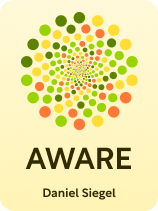

This article is an excerpt from the Shortform book guide to "Aware" by Daniel Siegel. Shortform has the world's best summaries and analyses of books you should be reading.
Like this article? Sign up for a free trial here.
Is your sense of connectedness affecting your overall well-being? How can strengthening social bonds improve your mental and physical health?
In Aware, Dan Siegel highlights the importance of social connections for our well-being. He argues that feeling connected to others and to all life is crucial for our mental and physical health. Modern society often encourages individualism, but this can lead to feelings of isolation and disconnection.
Read on to discover how connecting with others can transform you inside and out.
A Sense of Connectedness
Siegel says research consistently shows that having strong social relationships and having a sense of connectedness with all life are the best predictors of mental and physical health. He reasons that this is the case because the self is composed of both our individual bodies and our relationships with others—when we don’t have strong connections with other living beings, our sense of self diminishes, and we become depressed and anxious.
Siegel explains that modern Western society encourages us to see ourselves as individuals cut off from the “outside” world by the boundaries of our physical bodies, solely responsible for our own survival and success. This perspective contributes to people lacking meaning and to feelings of disconnection in life. But Siegel says this view doesn’t accurately reflect reality—human beings are composed of and interdependent with other living beings. While separate entities, we’re also a part of a web of interconnected life.
| The Epidemic of Loneliness and Disconnection The Surgeon General of the United States, Viveck Murthy, concurs with Siegel that strong social and community support is vital for our physical and mental well-being because we are naturally social animals. He explains that prolonged social isolation is a significant risk factor for physical and mental illness, including heart disease, depression, suicide, and other causes of early death. According to Murthy, the US is experiencing what he calls a loneliness epidemic—social isolation and loneliness affect about one in two Americans, regardless of age, income, or personality type. Murthy proposes a national framework to address loneliness and rebuild social connections, prioritizing human connection as a public health priority. His strategies to combat loneliness include strengthening social infrastructure through programs that promote healthy relationships, reevaluating our relationship with technology to allow for more face-to-face interactions, and taking personal steps to reconnect with others. |
Research suggests what ancient wisdom teachings worldwide, such as Buddhism, have known for a long time: Cultivating feelings of kindness and compassion toward other beings and yourself can radically change your life. It can generate brain activity patterns that link different regions together, improving coordination of neural activity. Siegel considers this coordinated neural activity to be patterns of kindness in the brain. When we produce these patterns regularly, they strengthen, ultimately becoming habits of compassionate thought and behavior.
(Shortform note: A closer look at the science of kindness and compassion reveals how these practices support health in the body. Studies have revealed that kindness and compassion activate regions of your brain associated with pleasure and reward, emotional regulation, decision-making, and positive emotions, potentially leading to improved emotional resilience, more motivation to care for yourself, and overall well-being. Additionally, hormonal changes in your body accompany these neural activities—they increase oxytocin (often called the “love hormone”) in your body, which promotes social bonding and trust, reduces levels of cortisol (the stress hormone), and decreases overall inflammation.)
Exercise
- Siegel emphasizes the importance of interconnectedness. Think about your own social connections. How do these relationships contribute to your sense of self and well-being?
- Are there areas where you could cultivate stronger connections, and how might doing so impact your mental and physical health?

———End of Preview———
Like what you just read? Read the rest of the world's best book summary and analysis of Daniel Siegel's "Aware" at Shortform.
Here's what you'll find in our full Aware summary:
- The benefits of increasing your awareness of yourself and the world
- How to use a meditation tool called the Wheel of Awareness
- How the Wheel of Awareness improves your bodily functions






